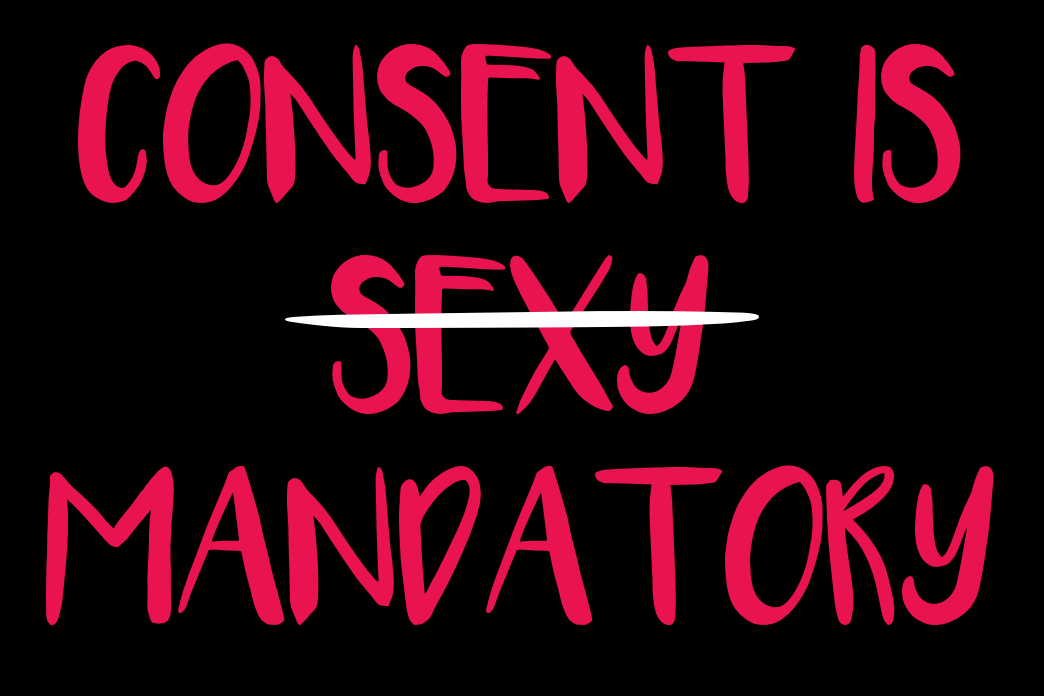A bit ago, I wrote about High Context Consent VS Low Context. Some time after that, I posted a guest blog on the Dating Kinky blog from @CatMaverick:
Consent isn’t actually the key.
And someone in Whips Chains & Duct Tape on Facebook said:
I have always thought that consent was the low hanging fruit that allows people to avoid talking about really challenging and complicated aspects of BDSM and kinky relationships.
And they have a point.
Which I addressed a bit in my post on high/low context consent. Thing is…
People new to an idea or a concept need rules or guidelines to follow.
Many times, people coming to something new (like kink or the idea of consent) don’t want to have to think deeply or want to LEARN. They want to accomplish an immediate task or goal.
“I want to navigate this kinky party and make friends, maybe get some play.”
They’ve been told they need consent to do that, so they want rules to help them make that happen.
- Don’t touch what isn’t yours.
- Always ask for and receive an enthusiastic “Yes” before engaging in any activity.
- Always stop with “No.” No means no.
- Check in as you go.
And so on.
And these rules are easy to understand, easy to follow, and so they feel safe and confident enough to start their journey into kinky play land.
Great!
And then they walk around the party, and they see people:
- Touching what isn’t theirs.
- Not always getting an enthusiastic yes right then.
- Not stopping for “No.”
- Not checking in.
And it’s confusing. Because they want to emulate what the successful, popular, PLAYING people do, so they can be that way, too.
And that’s when we have to remember:
People with a lot of experience work more on intuition than hard-and-fast rules.
Like knife skills in cooking.
When we first use a blade, we move slowly and carefully. Knives are sharp! Experts who cook every day and practice their knife skills move the blade faster than the eye can follow. They KNOW where their hands and the sharp blade is, without consciously processing it.
Do experts still make mistakes? Yes.
Experienced chefs still cut or burn themselves. People who run marathons still stumble over their own feet once in a while. People who make art every day sometimes make crap.
But they do it LESS often, per amount of experience.
New people first handling knives screw up and cut themselves more often. Toddlers learning to walk fall down more often. People just learning art sometimes accidentally color outside the lines.
And they learn from their mistakes.
Rules help newbies minimize mistakes AND minimize the seriousness of those mistakes as they learn to navigate.
(For those who have read [Thinking, Fast and Slow][https://www.amazon.com/Thinking-Fast-Slow-Daniel-Kahneman/dp/0374533555] by Daniel Kahneman, you might recognize the System 1 and System 2 brains in this writing)
See where I’m going with this?
So, I can say…
“Consent is sometimes as simple as, ‘Do you like when I do this? Would you like more? What if I move lower? May I touch you here?’ said in a soft voice with smoldering eyes…”
…when I’m speaking to people without experience in making consent an integral part of their sexuality and kink, and be right FOR THAT GROUP without suggesting it’s right for everyone, or saying it has to be done that way.
Because I’m speaking to a group without experience IN THAT AREA, and offering suggestions.
I’m not suggesting you have no experience.
I don’t know you, how could I do that?
Safewords are the only way to play safely.
I don’t use safewords.
NEVER do breath play.
I have been topping for 30 years and I know anatomy, and I am very careful and I love breath play.
No means no.
Except for when an entire relationship is CNC, and no never actually means no, but another word might mean no, or there might not be a no, except ending the relationship.
And so on.
It’s confusing. It’s frustrating. Especially when what WE do seems to be attacked from many angles, because people are so crazy busy warning unskilled players against it.
And that’s totally understandable.
But we need those simplistic rules to help us get the experience that then gives us mastery or intuition.
However interesting and clear this is, let’s pause for a moment, because I see another issue coming.
This particular book pits novices against experts.
Not many people want to identify as a novice, especially when they may have been kinky players for 20 years.
And does being an expert make you inherently better?
Well, first, let me say that NO ONE is an expert in everything. Rather we are on the spectrum in various places for various skills.
I’m pretty versed in communication. I’m way less versed in whips. I’m getting passably good at hypnosis as well, while still not being anywhere near “expert” status.
And so on.
But the idea of being called a newbie is for many pretty insulting.
What do we do to not only not alienate those who would benefit from the basics, but also offer more to those ready to move to another level, without confusing the two?
I don’t know.
I do know that I will keep writing from many perspectives, including the new-to-all-this-and-here’s-what-you-should-know viewpoint. And by doing so, I’ll get people telling me THEY don’t do it that way, and they are offended I mentioned it.
You know what, though?
I can live with that.
Because when you’re starting out, it really helps to have rules. And for those who have progressed beyond that, well, I’m not talking to you.
(That’s said with love and respect, and also with truth.)








